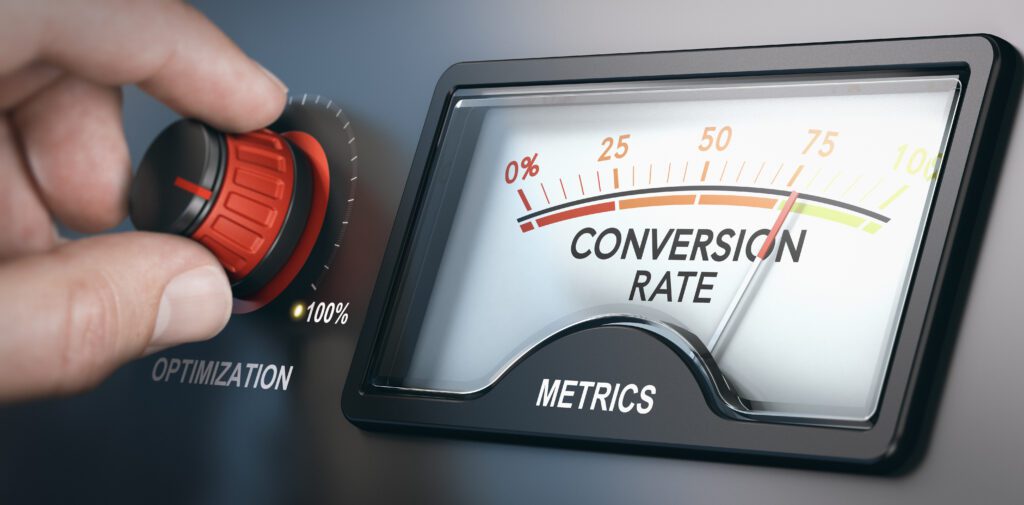B2B lead generation is the process of identifying and funneling ideal customers of your product or service into your sales process. Even here in 2023, B2B lead gen continues to prove it’s still an essential tool for marketers. Lead generation partnerships can only be successful if there is effective communication regarding goals and strategies between the marketing team and its partners.
In the past, B2B lead generation success was measured more so with the number of MQLs generated rather than if the leads were actually turning into customers and helping the business grow. While the focus of marketers has undoubtedly shifted to revenue and ROI, B2B lead gen has adapted to this revenue-focused mindset by producing fewer, but higher-quality leads with data-backed insight.
How B2B Lead Generation Works
B2B marketers who utilize lead generation aim to identify qualified leads and where they are in their buying journey. From there, leads are qualified and nurtured into prospects by the sales team. The relationship between marketers and B2B lead gen requires collaboration and transparency. B2B marketers who outsource lead gen efforts are relying on the delivery of quality leads and useful insight into their behavior.
RELATED ARTICLE: Understanding Differences in B2B Buying Groups
A major criticism of lead generation partners in the past has been the lack of quality lead delivery. With a target set on high-quality leads rather than a large quantity of them, lead gen partners have improved lead generation through a major focus on data. Creating parameters around intent data, firmographics, and technographics has assisted lead gen partners in defining what a quality lead looks like.
Lead generation has adapted to our new tech age and better aligned itself with B2B marketers. There’s been a shared shift in focus to seeing an immediate return on investment. B2B lead gen partners have mirrored this by shifting their focus from producing marketing qualified leads (MQLs) to also better equipping marketers to generate revenue. This redefined, targeted approach to lead gen has resulted in marketers and businesses better allocating resources and seeing higher conversion rates.
5 Ways B2B Marketers Benefit from Lead Generation
If your lead generation efforts and the partners you work with aren’t helping you meet revenue goals, then it’s time to consider making changes. Here are five things to consider when evaluating your lead generation programs and your partners.
Developing More Defined ICPs
To find the most benefit from B2B lead gen, it requires you to take insight found in the data from your successes and failures, and use it to clearly define your ideal customer profile (ICP). An ICP is a data-backed description of your customer base.
With a strong and revamped ICP, you’re able to better understand and strategize lead gen, and even lead nurturing tactics. With key insight into who you’re targeting, you’ll better identify trends and patterns among your buyers. Knowing your target market, inside and out, will ensure your resources are being used deliberately.
Producing Detailed & High Quality Leads
ROI is still a priority for B2B lead gen programs and the marketers who manage them. The targeting capabilities have expanded beyond just scouring basic “business card” information such as names, titles, email addresses and company phone extensions. The demographics that include socioeconomic data points like age, income level, and gender are insightful, but limited when making targeting decisions.
RELATED ARTICLE: Top B2C Marketing Strategies to Apply & Avoid
You can now access firmographics, technographics, and even buyer intent. The firmographics grant access to company size, revenue, and pain points while technographics list the software or tools ICPs use. Behavior data accounts for how your ICPs interact with your brand, or similar ones. This quality-over-quantity approach to lead generating enables you to better measure the likelihood of conversion.
Helping Prioritize & Map Lead Engagement
Modern B2B lead gen clearly instructs how and, equally as important, when engagement with leads makes the most sense. As expected, you’ll be presented with leads who display strong buyer intent currently and thus are ready to be targeted by account managers. But you’ll also receive leads in earlier stages of their buyer journey who are worth nurturing for an eventual purchase.
With access to leads in all stages of their individual buyer journeys, marketers are able to meet leads wherever they are. When you have a lead identified who is only in the research phase, a case study may not be as successful as a trial or product demo. Whereas another lead may be ready to commit to a purchase right then. B2B marketers understand the importance of knowing your lead’s expectation. This way, you’ll be winning deals and seeing immediate ROI while also maintaining sight of the long game.
Enabling Personalized Outreach
This new age of B2B lead generation allows marketers to personalize their company or brand’s outreach to the different types of leads identified. Instead of sending the same message to the variety of leads produced, you can control when and how they receive outreach.
A major advancement in B2B lead gen is that leads can access your product or service earlier. The use of free trials and freemium offers allow users to try before they buy. This challenges the old way of lead generation where leads had to interact with sales teams directly before even experiencing the proposed solution to their problems.
Providing Advanced Data & Analytics
Another major benefit of modern B2B lead gen is the access to advanced data, analytics, and reporting metrics. Through machine learning and stored historic data, buyer behavior and buyer intent can now be visualized through reporting dashboards. The era of modest lead gen is over, and the more predictive data available, the easier it is to identify trends and stay ahead of the curve.
The approach B2B marketers have to lead generation is undoubtedly being led by data being poured in from various sources. With this keen insight, marketers can now optimize the sourcing, and identification of high-quality leads. Having access to the appropriate analytics makes it easier for marketers to see the immediate success of campaigns and thus revenue.
These five benefits of lead generation to B2B marketers are only the start of the many ways lead gen continues to evolve. With strong ideal customer profiles, highly qualified leads, prioritized lead engagement, personalized outreach, and advance reporting, B2B lead gen proves it still provides the focus on revenue and the prized ROI marketers are after.
Looking Forward: B2B Lead Generation Partnerships

Before committing to a B2B lead gen partner, there are more factors to consider. This includes tested quality assurance of leads, accessibility to a dedicated client success rep or account manager, transparent strategizing, and your partner being just as invested in your success by offering insight and recommendations to ensure you’re seeing the results you’re after.
It’s critical for B2B lead gen partners to provide marketers with quality assurance (QA) testing of the leads they’re providing. This echoes the new wave of quality over quantity lead generating. QA testing ensures the leads funneled to marketers are real, vetted, and qualified.
B2B lead gen partners should also be candid about how they’re targeting and generating your leads. You’ll want to know their outreach strategies and if it includes website lead capturing, email or teledemand marketing, or a combination of many. Doing so guarantees their generating strategies are consistent with your brand identity and time or money isn’t wasted.
A dedicated success rep or account manager from the B2B lead gen partner should be assigned to you and your business. They act as a liaison between you and the B2B lead gen company as a whole. They’re objective is to ensure your leads are to your satisfaction and advocate for your success.
Your client success rep and B2B lead gen partner should also play the role of educator and advisor. Marketers know the market is ever changing, so finding a partner who is adaptable is important. Your partner should be able to forecast and provide recommendations or suggestions to strengthen your lead generating performance.
The bottom line is, B2B marketers still have much to gain when utilizing lead gen partnerships. While you’ll still benefit from its core features like receiving an automated list of qualified leads, there are advanced features like outreach strategies and reporting capabilities that can greatly improve your lead generation process as a whole.
To learn more on this intersection of innovation and B2B marketing, check out our podcast with Jonathan Sedger of B2B marketing agency Twogether.



